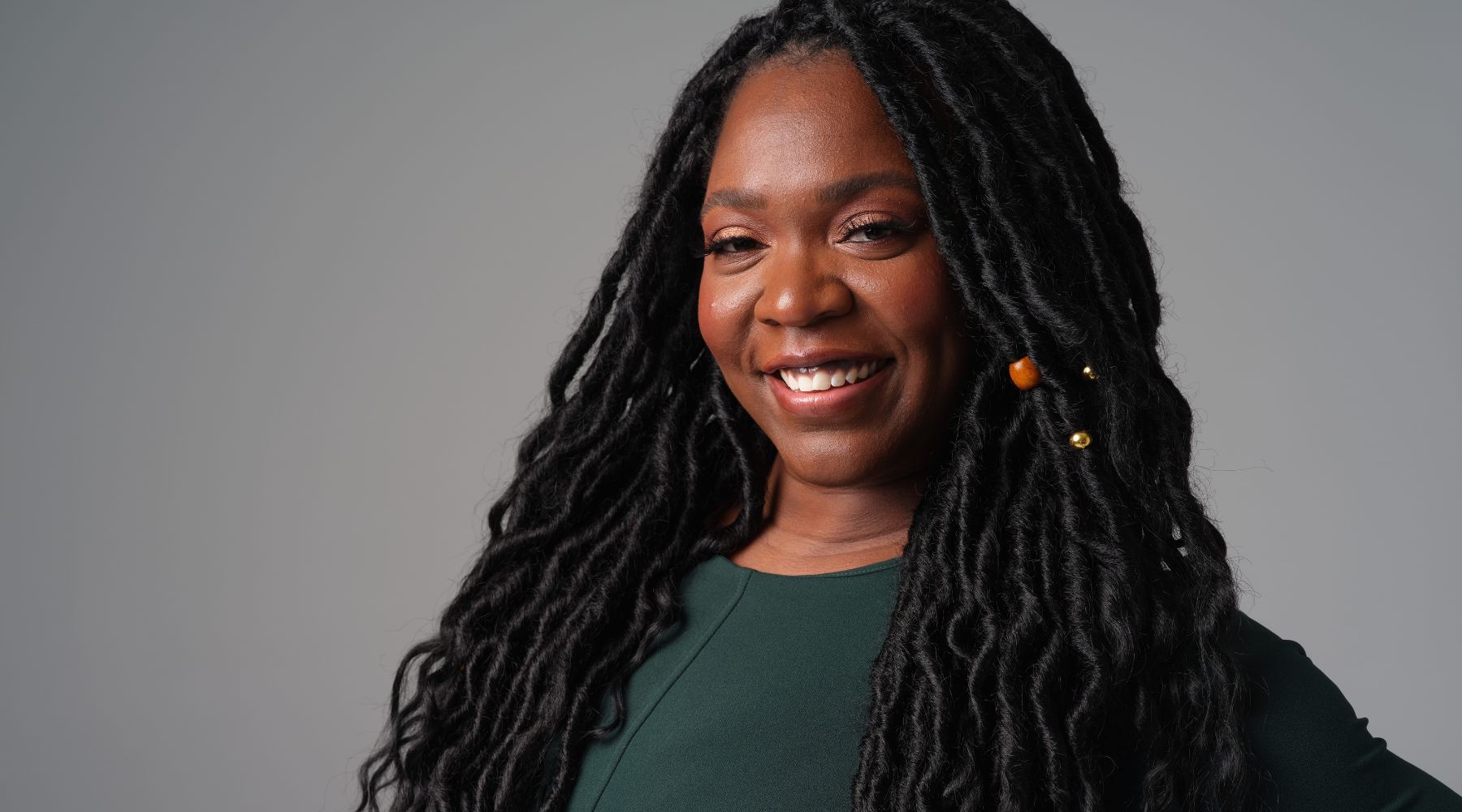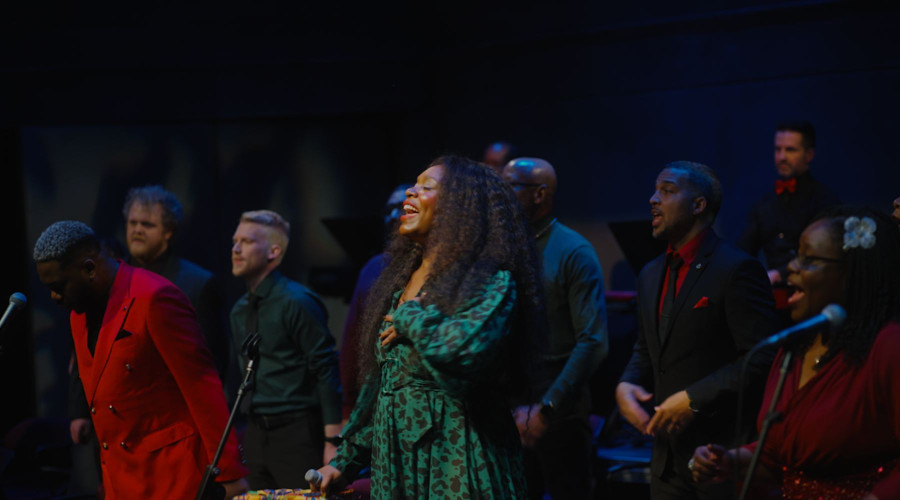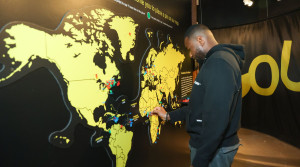At the height of 2020, as people seemed to be listening, Kane was at the forefront of leading change. Now, as anti-Black racism education has dwindled and DEI work has started to disappear, Kane still remains at the helm asking leaders to remember what they said not so long ago.
Kane was born in Toronto, and grew up in Orlando, Florida before settling in London. She owned a performing studio called AK Arts Academy, which had to close during the pandemic. “Grand Theatre had heard of me and knew that I was an artist and invited me in. I was able to curate this opening festival. I was able to bring my activism into my art and then display it which was really great.”
Titled Finding Black Joy, the opening festival curated by Kane featured a short film, an onstage show, and spoken word. After that she was able to continue working with the Grand Theatre as a Musical Director.
“I felt the need to lead and navigate at least the small - at the time - group of us through a difficult time. No one tells you that when you do activism, that it's not just a rally, it's not just a protest and a march. Let's talk to the politicians, let's talk to these leaders, let's figure out how we can best move forward in a way that honours Black people.”
{https://www.youtube.com/watch?v=5c7DBaIqvMk}
Like many places during the civil unrest following George Floy’d murder, London as a city tried to be accountable and was open to change, to listening to BIPOC community members and to committing to end anti-Black racism.
But as the media has slowly moved away from being concerned with anti-Blackness, London has eased back into its old ways and has slowed progress with anti-racism.
 Alexandra Kane (submitted).
Alexandra Kane (submitted).
Kane tells us that everyone rallied when George Floyd was murdered, that people said the right things and meant well but that as the progress got louder, so did the opposition. “We're in that phase where [the opposition] is encouraged. I don't want to say they are threatened, but maybe that's what they feel. I don't know. I am not them. A lot of people have relaxed, have given up, have grown tired or have moved on to something else in regards to conversations we had toward progress. We’re in a weird place. The wind has left the sails.”
With regard to certain politicians, Kane shares that some of them have changed their minds about stances in comparison to their public statements at the height of the Black Lives Matter movement. The Mayor of London was a councillor during the time of George Floyds murder. Kane tells us that he spoke of “global awareness of police brutality”, and even campaigned on his website with an anti-Black Racism lens but those sentiments seem less prevalent now. Politics, she says, is a game that people have to play to be successful.
She talks about the City of London investing $672 million into the London Police force, with the mayor of London proudly calling it "the single largest public safety investment in London's history”. While the mayor was a councillor, and Kane met with various politicians, they all voiced to her an understanding of “violence from policing toward Black and Indigenous Peoples” and said they felt and understood how terrible it was. Yet these same politicians voted in favour of this massive investment which goes against any understanding they claimed to have.
Police budgets were a big part of the discussions Kane had as she helped remove police from London public schools. She and a team met with cops. She shares that by listening to them she was able to use what they shared as reasoning to remove them from this post. “[The cops] told us in the meeting that they don't have the budget to [be in the schools]. We did a survey and the cops couldn't answer why they were [in the schools] and the students couldn't answer why they were there. That's what I'm telling you: You've got to listen to what the cops say because they will tell you how to dismantle them.”
As the issue of police within the London schools progressed, students put together a letter asking police not to carry guns or wear their uniforms within the schools. The document also asked about their purpose for being in the schools, what they were teaching the students by being present and requested they take diversity, equity and inclusion courses. The cops responded by saying that they would not do training due to budget, and that they could not remove their uniforms in case they got called for an emergency and needed to leave the school ready.
Kane felt that the students had provided a way for the police to meet their needs, and by the police refusing to compromise, they had no place at the school. “I told all the politicians who vote on the matter that this is what [the cops] said. They don't want to change who they are and what they do. I told politician after politician. Then they went into that meeting and they said, this is what is happening and, if they’re not going to do the work, they don't belong there.”
Kane describes the racism in London as insidious and sneaky as opposed to overt. She feels the way politicians handled the policing budget is a perfect example of this insidiousness. “Some politicians at first say, ‘Oh, we want to help Black people and Indigenous people and all these minority communities.’ but then they get into their office and approve this budget for policing while defunding our library programs and other programs.” She adds that it feels like many of the politicians lied to get to where they are within governmental power and are not helping the Black, or BIPOC community.
In the midst of advocating for the Black London community, Finding Black Joy premiered at the Grand Theatre. It debuted during the pandemic and as a result the audience size was reduced. Kane and the team at Grand Theatre ensured there were as many Black community members as they could host. The goal was to both educate the non-Black audience members, and also allow Black community members to celebrate each other despite their traumas, despite racism, and still find themselves singing and rejoicing with one another.
Kane feels that the Grand Theatre has done a lot of work handling issues while still working out systemic issues that may take generations to shift.
Many activists feel a system can’t be changed from within. Kane feels that most systems need a completely fresh start. “The very nature of the word systemic is that it is built in. It is the system. In order for it to be different, it has to be gone. You can make improvements in any system. You can change the traffic light to always stay red, for example, but the traffic light is still there. Is it not?”
Kane feels her truck to activism has been catching more flies with honey, than with vinegar. With the type of racism that we're dealing with in Canada and in my world of London - it’s very quiet and very sneaky and it's the art of war. You have to also be quiet and sneaky and sometimes play the game. Others might look at me and say, ‘Oh, she's selling out’. There's a plan. Just hold on a second. My method works. I'm in. Let me now fix on the low.”
Grand Theatre is currently putting on The Sound of Music until December 29th.

 By
By 





